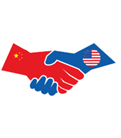Cooling Prices, Hot Politics
 Markets entered the week hoping for calm and got just enough of it—until oil surged late Friday on renewed Middle East tensions. A shaky but welcome “framework” trade deal between the U.S. and China, coupled with softer-than-expected inflation readings, helped boost investor mood. But as always, the fine print—and the follow-through—will matter more than the headline.
Markets entered the week hoping for calm and got just enough of it—until oil surged late Friday on renewed Middle East tensions. A shaky but welcome “framework” trade deal between the U.S. and China, coupled with softer-than-expected inflation readings, helped boost investor mood. But as always, the fine print—and the follow-through—will matter more than the headline.
Global equities ended the week slightly lower but remain close to record highs. Bonds found support from soft economic data and strong demand at a U.S. Treasury auction. Gold continued to offer diversification benefits amid rising tensions in the Middle East.
 Washington and Beijing shook hands on the outline of a trade truce, with mutual tariff reductions and temporary easing of export restrictions. Investors welcomed the lower risk of a tariff spiral, but clarity remains lacking. Questions remain around how enforceable the deal really is, how much relief it offers manufacturers, and whether the 90-day pause with other trading partners will actually hold.
Washington and Beijing shook hands on the outline of a trade truce, with mutual tariff reductions and temporary easing of export restrictions. Investors welcomed the lower risk of a tariff spiral, but clarity remains lacking. Questions remain around how enforceable the deal really is, how much relief it offers manufacturers, and whether the 90-day pause with other trading partners will actually hold.
Impact: Market sentiment may be supported in the near term, but the real impact on company earnings will be a key factor—an active management approach may help protect client assets in this environment.
 Price data across the U.S., Europe, and Asia suggest inflation continues to cool. Services costs are moderating, and goods prices have remained surprisingly tame—likely because many companies stocked up ahead of tariffs. That’s bought the Fed some breathing room, but the second-half outlook remains murky. Once tariffs start biting through inventories, price pressures could return.
Price data across the U.S., Europe, and Asia suggest inflation continues to cool. Services costs are moderating, and goods prices have remained surprisingly tame—likely because many companies stocked up ahead of tariffs. That’s bought the Fed some breathing room, but the second-half outlook remains murky. Once tariffs start biting through inventories, price pressures could return.
Impact: The dominant trend remains lower inflation—barring any tariff-related shocks—and any price spikes are likely to be seen as temporary. Instead, concerns around US deficits and geopolitical risk are more likely to influence bond markets.
 The dollar had another rough week, as global investors—especially European pension funds—are hedging US exposure more aggressively. When investors hedge, they keep exposure to US assets but remove the currency risk. That means entering contracts to sell dollars in the future, which puts downward pressure on the currency. Meanwhile, the equity risk premium—how much investors are rewarded for taking on risk—is nearing historically low levels again, prompting questions about whether stock valuations have run too far, too fast.
The dollar had another rough week, as global investors—especially European pension funds—are hedging US exposure more aggressively. When investors hedge, they keep exposure to US assets but remove the currency risk. That means entering contracts to sell dollars in the future, which puts downward pressure on the currency. Meanwhile, the equity risk premium—how much investors are rewarded for taking on risk—is nearing historically low levels again, prompting questions about whether stock valuations have run too far, too fast.
Impact: U.S. equities often make up a large portion of European investor portfolios. While a weaker dollar can weigh on short-term returns, it may also set the stage for stronger gains ahead.
 Crude prices jumped late in the week after renewed geopolitical tensions flared in the Middle East. That lifted energy stocks but raised fresh concerns about headline inflation. Still, past episodes suggest the market impact of geopolitical shocks is usually brief—unless the conflict escalates further.
Crude prices jumped late in the week after renewed geopolitical tensions flared in the Middle East. That lifted energy stocks but raised fresh concerns about headline inflation. Still, past episodes suggest the market impact of geopolitical shocks is usually brief—unless the conflict escalates further.
Impact: We remain alert to potential escalation, but confident that our clients’ portfolios are well-diversified. In times of uncertainty, rushed decisions and attempts to time the market often do more harm than good.
